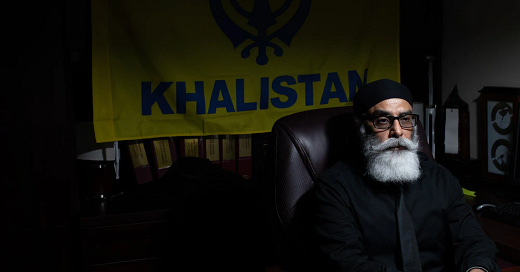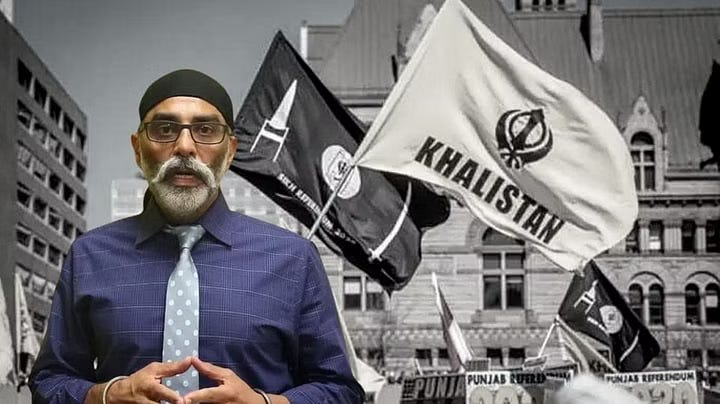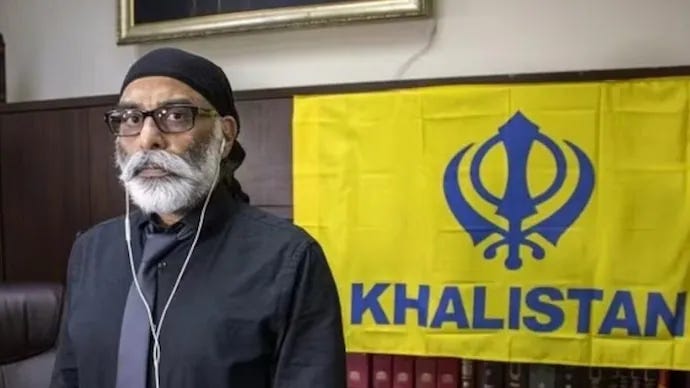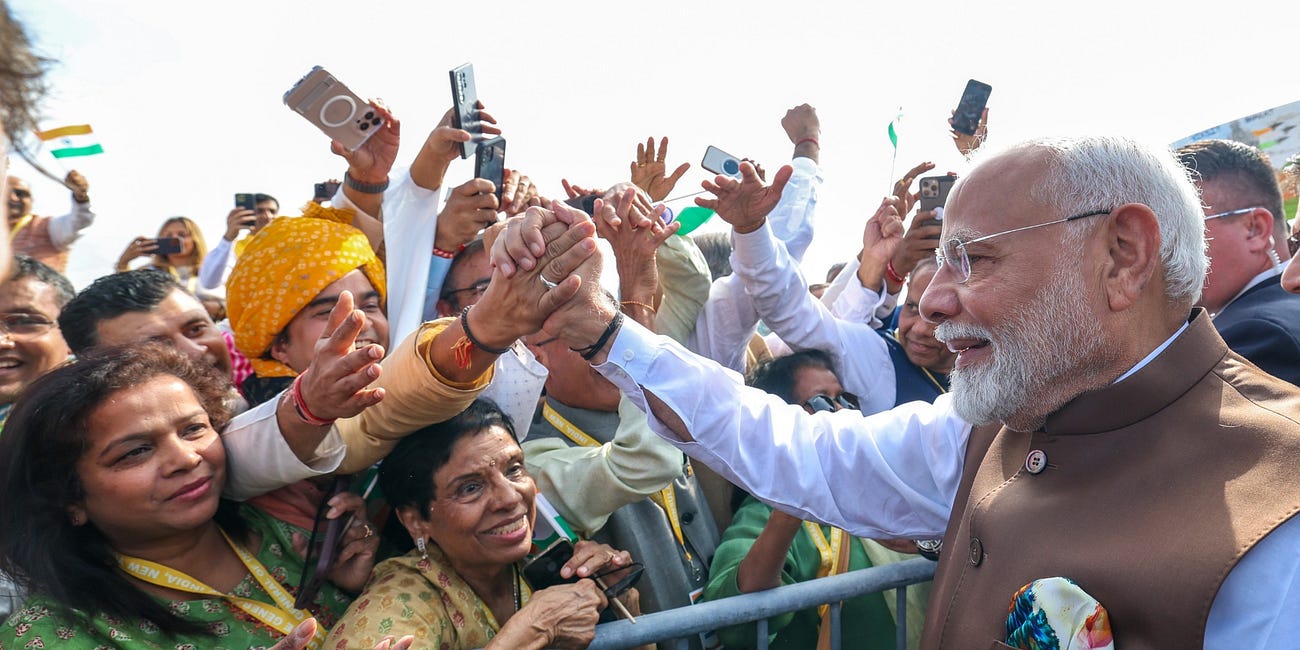'Intelligence Agents in New Delhi Still Want Me Dead,' Claims Gurpatwant Singh Pannun in Bloomberg Interview
The self-styled Khalistani ideologue and face of "Sikhs for Justice," who stands declared a terrorist under Indian law, also criticizes the Biden administration for its "quiet diplomacy."
Khalistani Separatist Pannun Claims Ongoing Threat, India Dismisses Allegations
Gurpatwant Singh Pannun, a US citizen residing in New York and a self-proclaimed Khalistani ideologue, has once again made headlines, this time through a Bloomberg interview in which he discussed his claims of an ongoing assassination plot allegedly orchestrated by Indian intelligence agencies. As the leading figure behind "Sikhs for Justice," an organisation designated as a terrorist entity by India, Pannun's remarks have sparked renewed concern and controversy. This development comes at a sensitive time, given the ongoing tensions between India and separatist Sikh movements anchored abroad, all within the broader context of India-US diplomatic engagement.
Pannun's Bloomberg Interview: Queering the Pitch
In an interview with Bloomberg published today (9th October 2024), Gurpatwant Singh Pannun, the self-styled leader of the pro-Khalistan movement and a "proclaimed offender" wanted in multiple criminal cases in India, expressed escalating concerns about his personal safety. Pannun claimed that the threat to his life has increased, alleging that Indian intelligence agents based in New Delhi still want him dead. He criticized the Biden administration's "quiet diplomacy," arguing that it has failed to deter Prime Minister Narendra Modi’s government or hold it accountable for the alleged assassination plot. Pannun lamented that despite these serious threats, the Indian regime has faced no consequences.
To counter the perceived danger, he revealed that he has employed five security guards, who even search the bags of close friends and associates. The interview, conducted in Pannun's New York office, adds urgency to the ongoing narrative surrounding the threats against him and underscores his dissatisfaction with both Indian and U.S. responses, effectively queering the pitch in the broader political discourse.
India's Stance and Dismissal of Claims
India has categorically denied Pannun's allegations, maintaining that his claims are fabricated and politically motivated. The Indian government, which has designated Pannun a terrorist under the Unlawful Activities (Prevention) Act (UAPA) since 2020, accuses him of anti-national activities aimed at destabilising India's sovereignty and territorial integrity.
Foreign Secretary Vikram Misri, in a recent statement, called Pannun's assertions "unwarranted and unsubstantiated." Misri reiterated that Pannun’s organization, Sikhs for Justice (SFJ), has been involved in subversive activities that threaten India's national security.
Lawsuit Filed in the US: A New Twist
In a parallel development, Pannun has filed a civil lawsuit in the US District Court for the Southern District of New York. The lawsuit impleads the Government of India and key officials, including National Security Advisor Ajit Doval, former R&AW chief Samant Goel, R&AW agent Vikram Yadav, and Indian businessman Nikhil Gupta. The lawsuit alleges that these individuals were involved in a plot to assassinate Pannun on US soil. The US court has issued summons, requiring a response from the Indian government within 21 days1.
The Alleged Assassination Plot
The lawsuit stems from the November 2023 arrest of Indian national Nikhil Gupta, who was extradited from the Czech Republic and accused by US prosecutors of plotting to assassinate Pannun on American soil. The US Justice Department has further alleged that an Indian government official was orchestrating the plot, adding another layer of tension to the already strained diplomatic relations between India and the United States.
India's Investigation and Diplomatic Response
India has taken these accusations seriously, launching an internal investigation into the allegations. External Affairs Minister S. Jaishankar, however, stressed that the allegations would not derail India's broader relationship with the US, which has been improving in the context of shared geopolitical goals, particularly concerning China.
Diplomatic Implications and Broader Security Concerns
This case underscores the fine line between maintaining strong diplomatic ties and navigating complex security concerns. India's firm stance against Khalistani separatism, which it views as a significant threat to national security, has caused ripples in international circles, particularly given the accusations of extraterritorial operations targeting a US citizen on American soil. The alleged plot targeting Gurpatwant Singh Pannun has added further strain to the already sensitive dynamics between India and Western nations, particularly the US.
From India's perspective, groups like Sikhs for Justice (SFJ) represent an existential threat to national integrity, justifying strong countermeasures. For Western nations, including the US, the challenge lies in balancing diplomatic relations with India while adhering to domestic legal frameworks, especially when the safety of a citizen is alleged to be in jeopardy. This dual challenge tests the capacity of both governments to manage their evolving partnership amid growing geopolitical pressures2.
Media Stir and Political Undertones
As the case unfolds, the Pannun controversy is likely to remain a minor blip in the broader landscape of India-US relations, unlikely to significantly strain the otherwise strengthening bilateral ties, especially following Prime Minister Modi’s recent visit to the USA. In our view, Pannun's latest media appearance seems strategically timed to stir public attention, likely aimed at garnering financial support from naïve Sikhs in North America who might be misled by his narrative. At the same time, this move could play into the political dynamics of Donald Trump's presidential campaign, indirectly criticising the Biden administration's handling of the issue, with US elections just weeks away.
Citations
US Court Summons NSA Ajit Doval and ex-RAW Chief Samant Goel in Pannun's Civil Lawsuit
US Court Summons Top Indian Officials in Alleged Assassination Plot
Diplomatic Turbulence: Sikh Activists White House Meeting Casts Shadow Over Modi's US Visit
White House-Sikh Activist Meeting Coincides PM Modi’s Landing in USA







